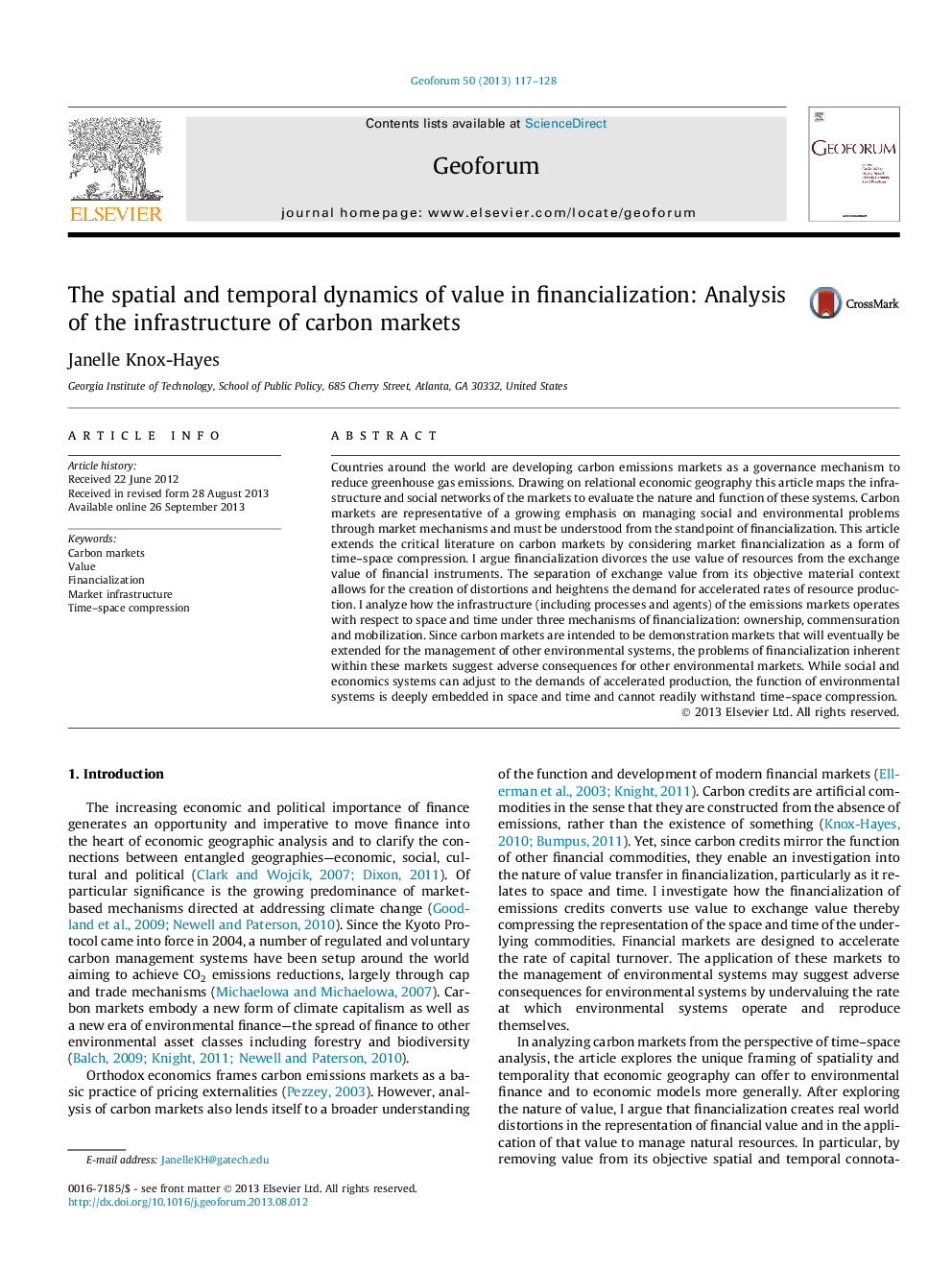| Article ID | Journal | Published Year | Pages | File Type |
|---|---|---|---|---|
| 5074125 | Geoforum | 2013 | 12 Pages |
Abstract
Countries around the world are developing carbon emissions markets as a governance mechanism to reduce greenhouse gas emissions. Drawing on relational economic geography this article maps the infrastructure and social networks of the markets to evaluate the nature and function of these systems. Carbon markets are representative of a growing emphasis on managing social and environmental problems through market mechanisms and must be understood from the standpoint of financialization. This article extends the critical literature on carbon markets by considering market financialization as a form of time-space compression. I argue financialization divorces the use value of resources from the exchange value of financial instruments. The separation of exchange value from its objective material context allows for the creation of distortions and heightens the demand for accelerated rates of resource production. I analyze how the infrastructure (including processes and agents) of the emissions markets operates with respect to space and time under three mechanisms of financialization: ownership, commensuration and mobilization. Since carbon markets are intended to be demonstration markets that will eventually be extended for the management of other environmental systems, the problems of financialization inherent within these markets suggest adverse consequences for other environmental markets. While social and economics systems can adjust to the demands of accelerated production, the function of environmental systems is deeply embedded in space and time and cannot readily withstand time-space compression.
Keywords
Related Topics
Social Sciences and Humanities
Economics, Econometrics and Finance
Economics and Econometrics
Authors
Janelle Knox-Hayes,
